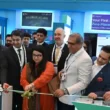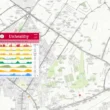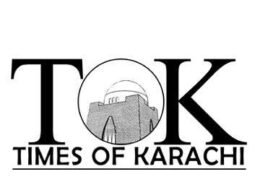In a recent session of the Karachi Metropolitan Corporation’s (KMC) City Council, a resolution was passed to authorize K-Electric (KE) to collect Municipal Utility Charges Tax (MUCT) through power bills. The resolution, tabled by Najmi Alam, the parliamentary party leader of the Pakistan Peoples Party (PPP), faced opposition but was eventually approved.
This decision comes after a previous attempt to grant KE the authority to collect these charges was halted by the Sindh High Court, which issued a restraining order in October 2022 in response to a citizen’s petition.
Despite the stiff opposition, the PPP successfully secured the approval of the resolution. Notably, immediately after its passage, Hafiz Naeemur Rehman, the chief of Jamaat-e-Islami (JI) in Karachi, announced the intention to table a no-confidence motion against Karachi Mayor Barrister Murtaza Wahab, who chaired the City Council session.
In addition to the approval of the resolution, another unanimous resolution was passed in the general meeting of the City Council. This resolution demanded that Sindh’s caretaker government take responsibility for paying pensions and other dues to retired employees of KMC and the now-defunct district municipal corporations.
During the session, Hafiz Naeemur Rehman warned that JI would approach the courts if the KMC budget is not presented through the council. He emphasized the need for elected representatives to manage the Sindh Solid Waste Management Board and the Karachi Water & Sewerage Corporation, expressing concerns over water shortages in Karachi even during winter.
Mayor Murtaza Wahab responded by stating that the law does not permit the reapplication of the budget through the council. He assured that funds would be released to the town and stressed the importance of a debate on MUCT. Wahab highlighted that only with adequate funds could the KMC deliver on its responsibilities, pledging to prevent corruption within the organization.
In a press conference following the City Council session, Deputy Mayor Salman Abdullah Murad extended an invitation to JI, expressing a willingness to collaborate for the betterment of the city. He emphasized the need for mutual discussions to address challenges.
The resolution to allow KE to collect MUCT through power bills was framed as a measure to enhance revenue for the KMC. Najmi Alam clarified that this tax had been imposed during previous administrations for the city’s improvement, and leveraging KE’s extensive consumer network was seen as a practical means of recovering bills.
The approved resolution and subsequent reactions underscore the ongoing challenges and debates within Karachi’s municipal governance, reflecting the complex dynamics of local politics and decision-making processes.









